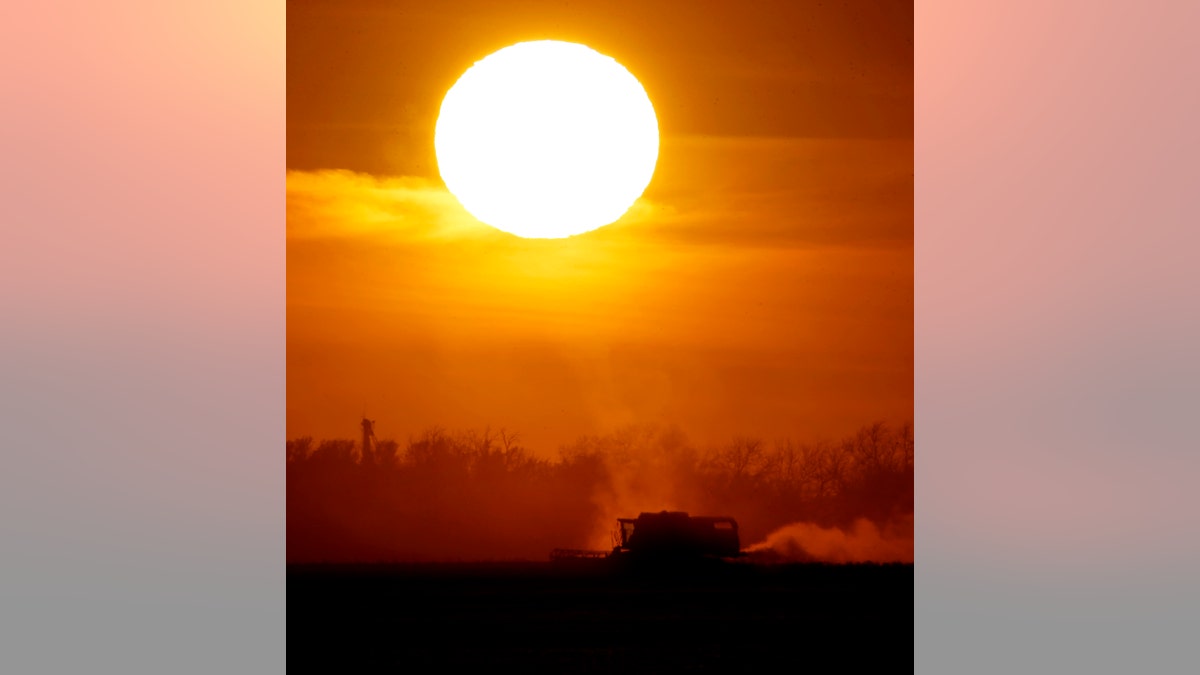Rural communities divided over green energy
Fox News chief Washington correspondent Mike Emanuel reports on farmers’ reaction to solar farms on ‘America Reports.’
The rural exodus by young Americans has ramped up once again, even after rural areas saw increased migration during the COVID-19 lockdowns. Yet, the future of the energy industry could revive rural American life.
More than 97% of land in the United States is considered rural, yet less than 20% of the American population lives in these areas. As a child of rural northern Minnesota, I know and love our country’s rural areas. There are few things I enjoy more than the excuse to return home, but undeniably, these sparsely populated rural areas across our country are experiencing turmoil.
With young people fleeing in favor of bright city lights and better opportunities, rural economies are struggling. The increasing gap between nonrural and rural employment is concerning, and sectors that have historically fueled rural economies – like agriculture – have challenges of their own.

A custom cutter uses a combine to harvest milo in a field near Salina, Kansas, as the sun sets on Nov. 13, 2014. (AP Photo/Charlie Riedel)
These communities have a special place in my heart, and yet, I too left my hometown in search of better prospects.
HUNDREDS OF RURAL HOSPITALS IN DANGER OF SHUTTING DOWN, STUDY FINDS: ‘AT RISK OF CLOSURE’
It isn’t all bad news, though. In fact, a flood of recent investments could be the opportunity rural communities need to revive their economies and provide good-paying jobs for young people who may otherwise move away from where they were raised.
According to a recent poll conducted by my organization in collaboration with Echelon Insights, 92% of young rural conservatives believe that job creation should be our greatest consideration when choosing energy sources to prioritize. A significant majority, exceeding 70%, of these young rural conservatives, are also in favor of transitioning toward clean energy solutions.
Fortunately, the opportunity to expand the clean energy industry is only growing and would address environmental concerns but also fulfill the pressing need for sustainable job creation in rural communities.
CRISIS IN THE NORTHWEST: DRUGS LEAVE RURAL AREAS TO ROT IN THE SHADOWS, ‘LIKE PLAYING WHAC-A-MOLE’
Local clean energy projects greatly benefit rural communities because they not only provide a more robust, diverse energy portfolio that drives down prices, but they also provide jobs and an economic boost to the surrounding area.
A recent report from E2 shows that clean energy tax incentives have driven more than $20 billion in investment in rural areas. This means the creation of 67,000 jobs, almost a third of which are permanent for the communities in which the projects are built.
Of course, a rural revival must go beyond clean energy investment, but with this economic boost, issues like rural broadband, access to health care, and infrastructure build-out can and will follow.
CLICK HERE TO GET THE OPINION NEWSLETTER
Embracing practices such as regenerative agriculture and supporting local farmers' markets can also make an impact on rural economies.
Integrating technologies and practices such as precision agriculture will not only create high-skilled jobs but also foster community resilience and food security.
Boosting clean energy and agriculture in rural areas has countless co-benefits for residents and the communities they call home.
CLICK HERE TO GET THE FOX NEWS APP
The bottom line is that clean energy can serve as a massive driver of rural revitalization. Rural American communities deserve economic opportunities that draw new job markets for young people.
Rural America is a special place, and we cannot forget it in our quest for a more sustainable future. In fact, rural America might just be the key to our clean energy success.





